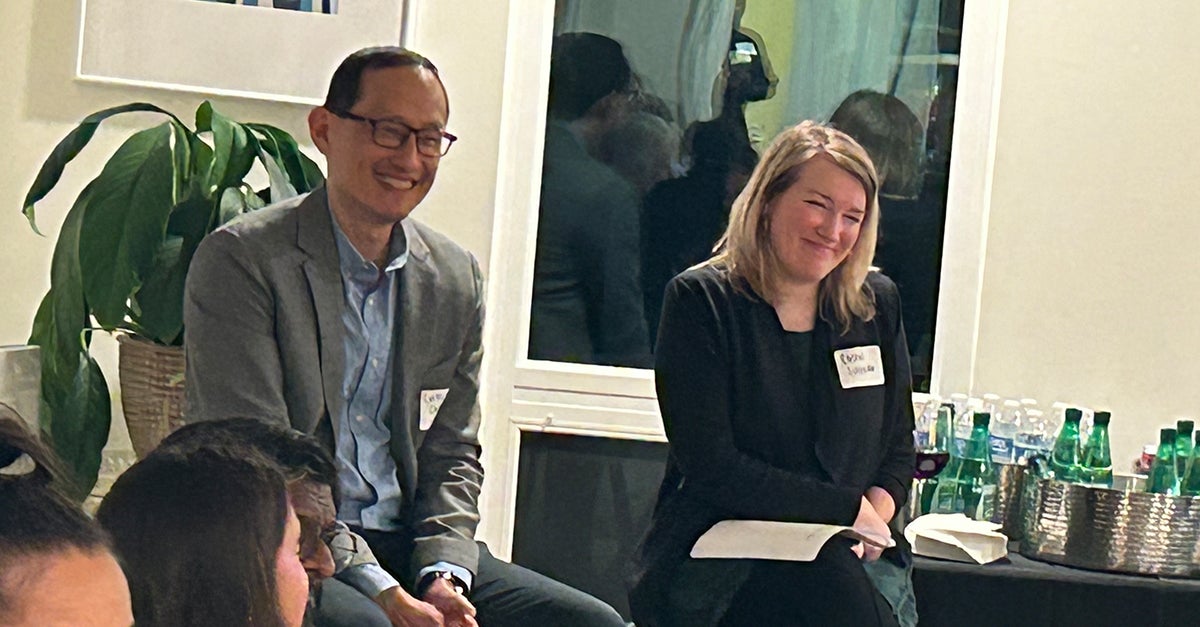
The Boniuk Institute's Religion and Public Life Center hosted public theologian and author Curtis Chang for a post-election discussion on religion, politics, and polarization.
RPLC director Rachel C. Schneider opened the evening with questions about his most two recent books: The Anxiety Opportunity, which frames anxiety as an opportunity to cultivate spiritual growth, and The Afterparty, which seeks to help Christian communities engage across political differences to combat polarization.
When asked why he decided to focus his writing on polarization, Chang indicated a desire to see Christians live by the "virtues of hope and humility" taught by Jesus, characteristics which cannot exist in a state of polarization. "Politics is about how we live together. How do we relate to someone we feel is wrong. I wrote [The Afterparty] because I feel like the 'how' of politics has gotten lost," he said. "We won't be able to address the 'what' of political difference without working on the 'how'."
The group of forty-one pastors, rabbis, nonprofit leaders, and students engaged with Chang on fundamental questions about the role or religious institutions in decreasing polarization--or in fostering its creation. "How can a religious institute take a long view rather than simply reacting to the current climate," asked one religious leader. "Congregational members," Chang said, "often follow social trends. One of the underlying problems Christian churches need to address is, beyond political polarization, how are we forming our people?" Chang gave an example of a church hosting a concert, bringing people together physically, but not spiritually 'forming' the people in attendance.

